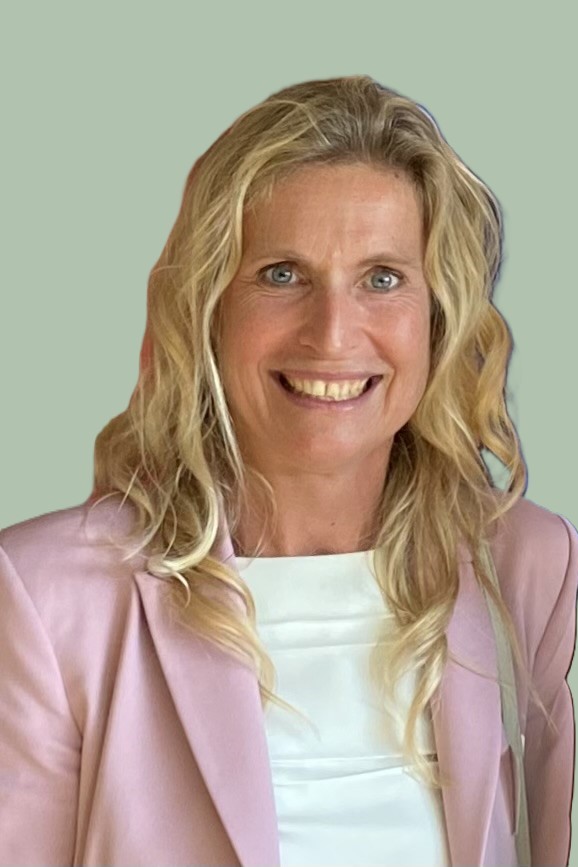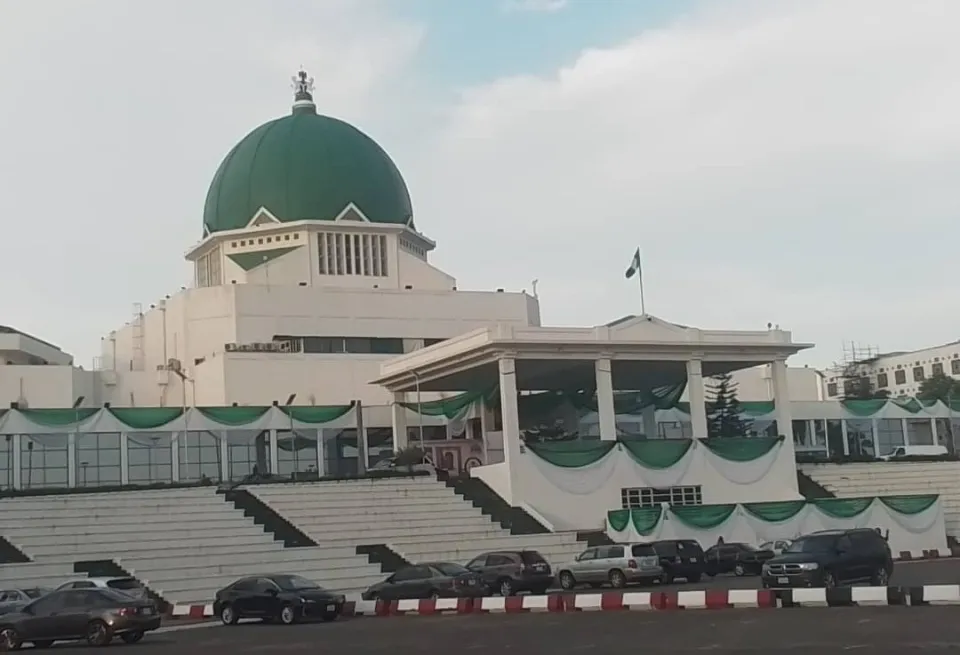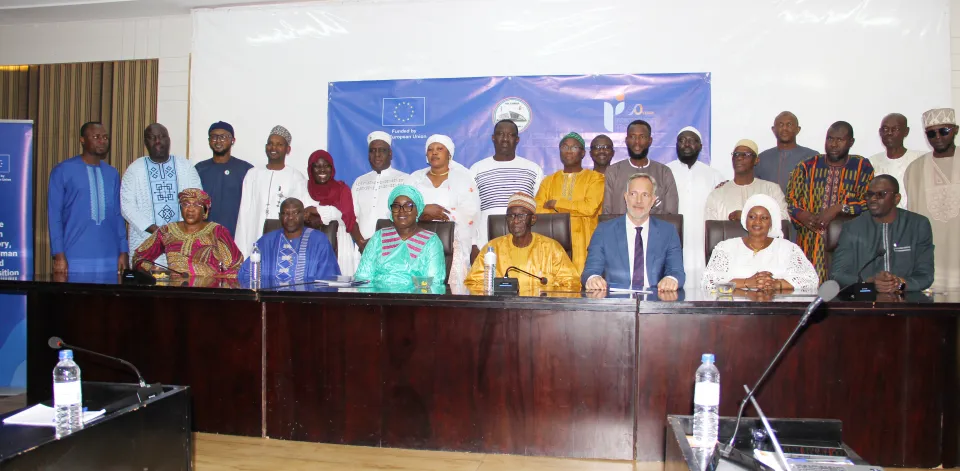Promoting EU leadership for democracy: Celebration of the International Day of Democracy 2018
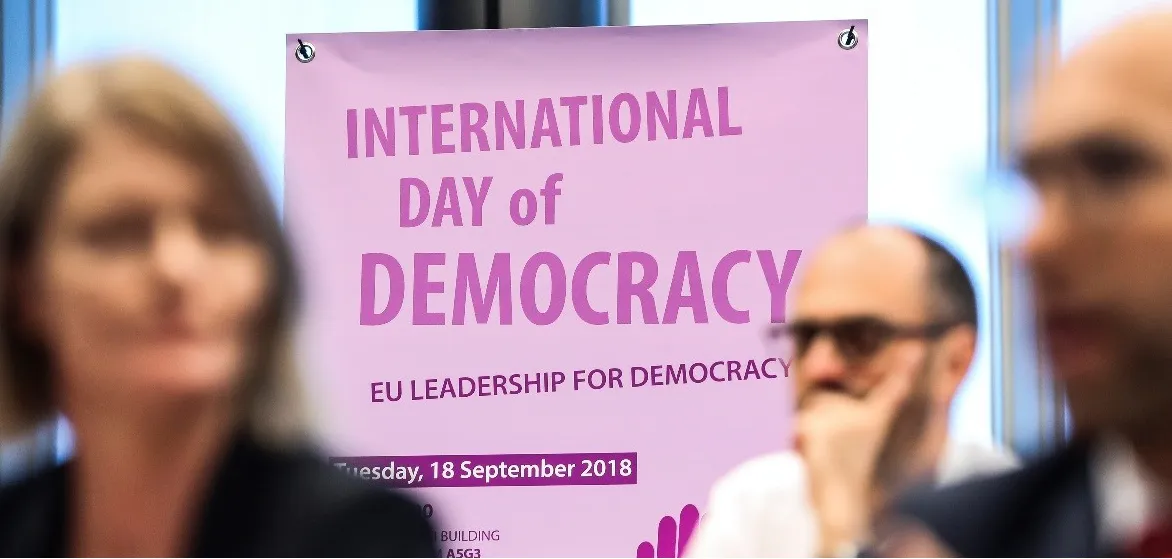
The Office of International IDEA to the European Union celebrated the International Day of Democracy (15 September) by co-organizing a high-level conference on, ‘EU leadership for democracy’, at the European Parliament in Brussels on 18 September 2018. Organizing partners were the European Endowment for Democracy, European Partnership for Democracy and European Network of Political Foundations, with the support of the European Parliament, European Commission, and European External Action Service. Participants included democracy support practitioners, EU and national policy makers, diplomats, civil society organizations, academics and interested citizens.
In a pre-recorded video message, the High Representative of the Union for Foreign Affairs and Security Policy and Vice-President of the European Commission, Ms Federica Mogherini, called for increased efforts and engagement to strengthen democracy. The keynote address of the conference was delivered by the European Union Special Representative for Human Rights, Mr Stavros Lambrinidis, who referred to the relation between democracy and human dignity: "Human dignity is not a western concern but a global concern. A universal concern. We're not animals, we are human beings and democracy is based on it". Lambrinidis emphasized the need to guarantee four elements of democracy: fair elections, inclusive participation, space for civil society, and checks and balances.
Plenary Session I focused on, ‘EU Leadership for Democracy - Internal and external dimensions’. The speakers underlined different challenges that confront democracy today. Mr Edward McMillan-Scott, a former Vice-President of the European Parliament and Patron of the European Movement, and Ms Veronika Mora, Director of the Hungarian Environmental Partnership Foundation, discussed the threat of the rise of populism in Europe, especially in Hungary and UK. Mr Salam Kawakibi, Director of the Arab Center for Research and Policy Studies, referred to the Syrian crisis and highlighted shortcomings in the EU’s response. He acknowledged some democratic progress in the Arab-speaking world, and called for the support of genuine local civil society, and to address root causes of terrorism and extremism.
Plenary Session II focused on, ‘Democracy through inclusion’. The moderator, Ms Shada Islam, Director at Friends of Europe, pointed out that the lack of inclusive participation and declining respect for the rule of law threaten democracy. The panel included speakers with different backgrounds and experiences in the field of inclusion and democracy. Ms Apolmida Haruna Tsammani, Founder of the Haly Hope Foundation - Nigeria, referred to the societal and democratic exclusion of women with disabilities. "Persons with disabilities have their rights, and societies should invest in guaranteeing those rights. (…) There is a general lack of funding in this area, at all levels of policy”, according to Haruna. Ms Véronique de Keyser, Former Member of the European Parliament, emphasized that citizens’ engagement is fundamental for democracy. Promoting this at the European level implies investing in young people to build knowledge on European history and institutional frameworks. Mr Mehdi Yehya, Founder of Peace of Art - Lebanon, explained how art is being used to fight discrimination against children of different backgrounds.
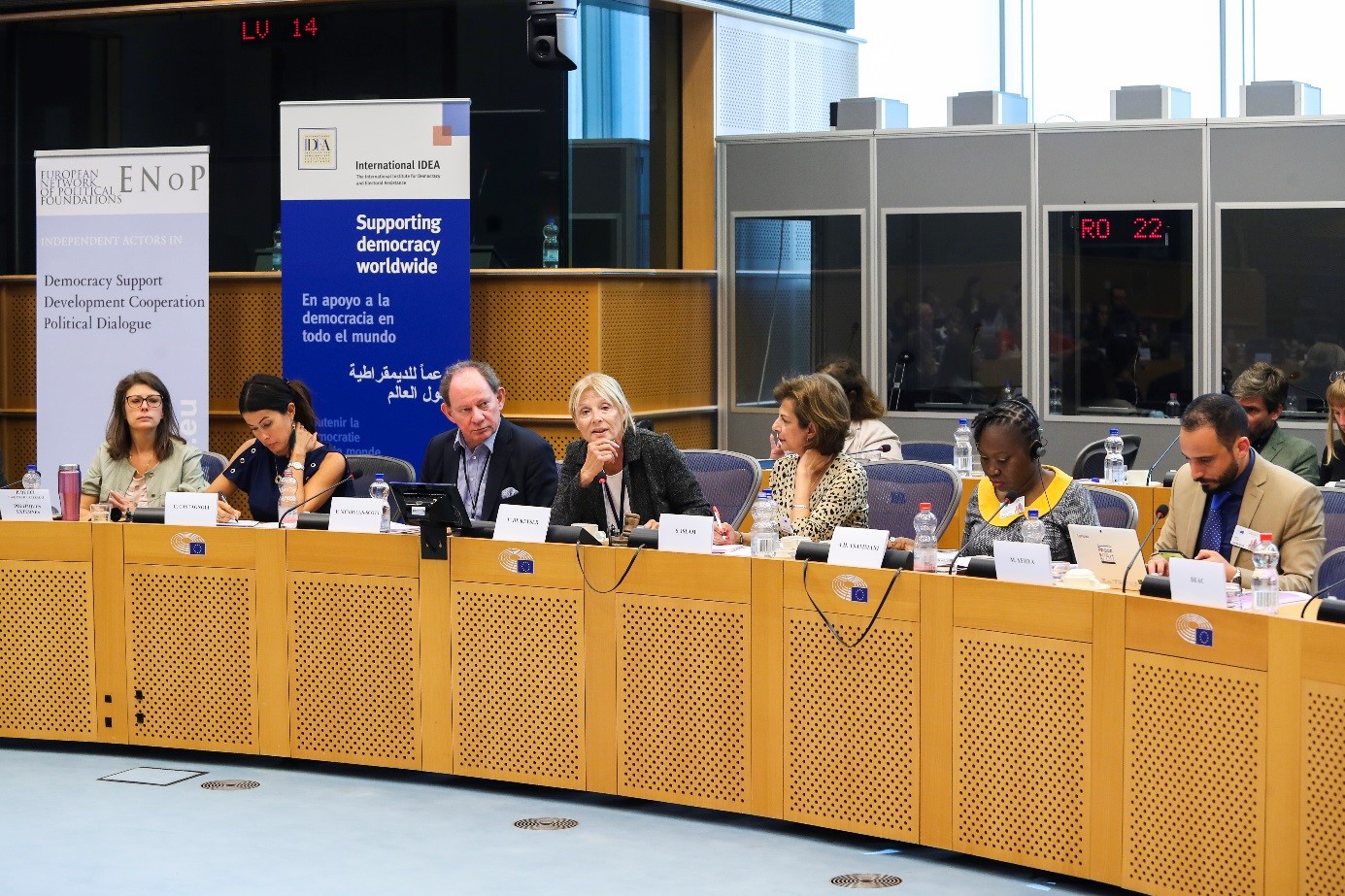
Apolmida Haruna Tsammani and Mehdi Yehya.
Plenary Sessions were followed by four interactive workshops, the first of which focused on, Technology and its impact on public sphere. The speakers, Mr Sean Evins, Team Leader Politics and Government Outreach at Facebook, and Mr Matt Stempeck, Former Director of Civic Technology at Microsoft and Digital Mobilization Team Leader at ‘Hilary for America’, discussed the role of social media in elections and politics in general, and how foreign interference in elections and the fight against fake news can be addressed by social media companies. Issues related to reinforcing the positive role of social media on participation, and minimizing its harmful effects on democracy, were also debated.
On International IDEA’s work on ICTs and democracy, check this link: https://www.idea.int/our-work/what-we-do/ict-elections-democracy
The second workshop on, Political leadership for engagement, was facilitated by the Office of International IDEA to the EU. The objective of the workshop was to identify ideas and tools to improve the political engagement of citizens, especially young people, and the relationship between politicians and citizens, in order to restore trust in politics and in democracy.
Mr Alberto Alemanno, Jean Monnet Professor of EU law, HEC Paris and Director of The Good Lobby, spoke about ways to increase citizens’ participation in, and impact on decision-making. When public interest in politics is growing, and especially online, participation in conventional politics has decreased. Alemanno proposed citizen lobbying as a way to fix democracy and get peoples’ voices heard: “Time has come to rethink the relation between the electorate and the elected”, he said. “This can be done by any citizen. People need to change from spectators to actors.” He presented the highlights and conclusions of his book entitled, ‘Lobbying for change’, in which he provides coaching techniques and tools for political lobbying by citizens, as an avenue for participation and representation. To democratize lobbying, authorities should invest in resources to support citizens, e.g. via an EU Lobbying Aid Fund to finance policy research to inform European Citizens’ Initiatives (ECI). The ECI can be made more user-friendly and efficient, e.g. by creating a mandatory public hearing in ECI petitions.
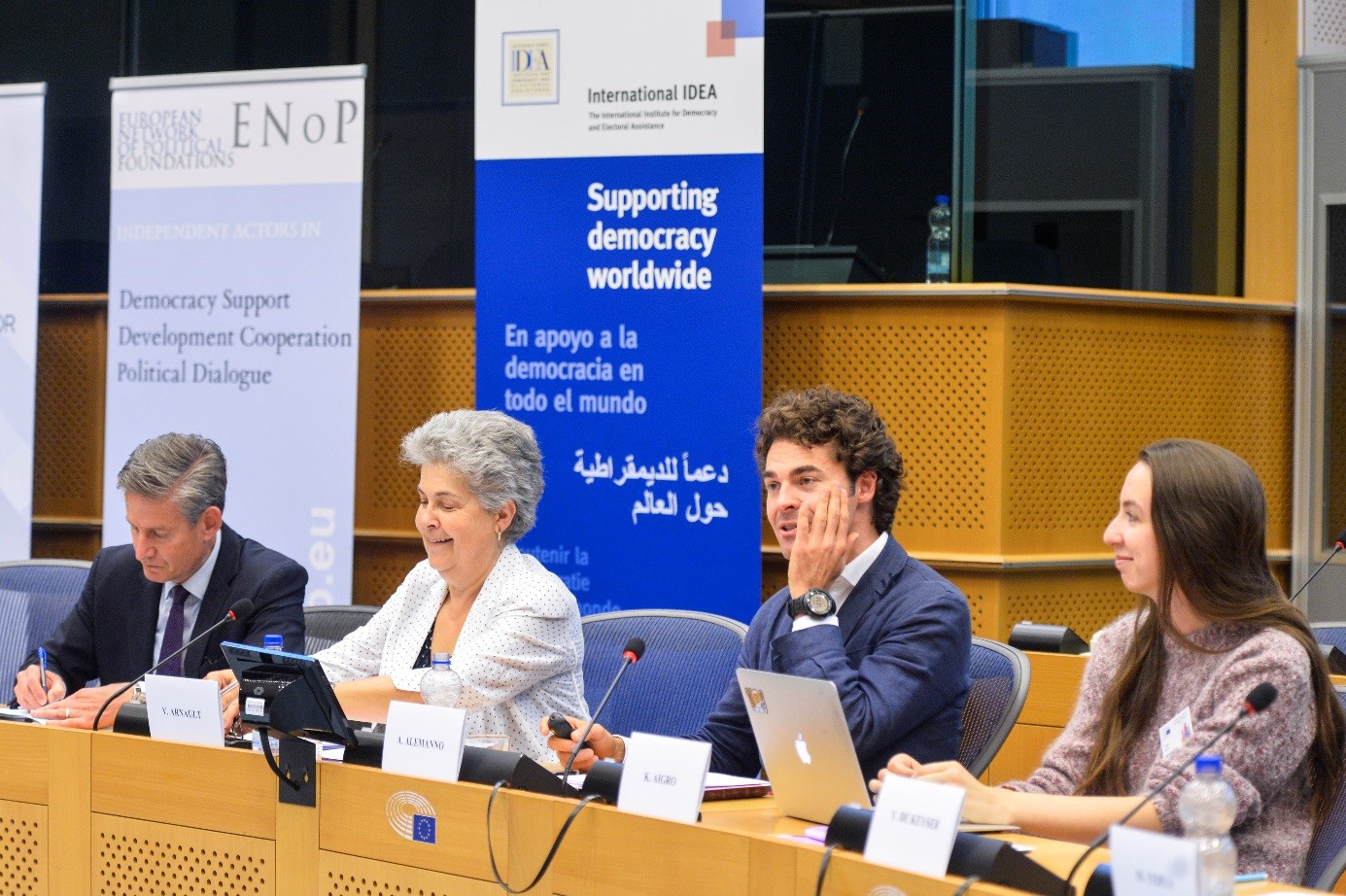
Remarks and questions from the audience were moderated by Ms Véronique Arnault, former Director of Human Rights and Democracy at EEAS, and related to new forms of democracy by random selection of citizens for parliamentary activity, and the priorities for leadership to connect with citizens. Rapporteur Ms Kristen Aigro, Board Member of the European Youth Forum, provided a summary of the actionable ideas generated by the workshop.
The third workshop was moderated by Ms Corinna Hörst, co-author of, ‘Women leading the way in Brussels’. Ms Virginia Garcia Beaudoux, Professor of Political Communication and Public Opinion at Universidad de Buenos Aires, and author of ‘Dancing Backwards in High Heels’, highlighted some conclusions drawn from exchanges with women in leadership positions, such as the need for equality of power and influence on top of numerical equality, and the persistence of double standards and stereotypes on female leadership. The development of a political action plan was proposed as a concrete step to advance women’s empowerment.
The fourth workshop on, ‘The State and Future of Democracy’, included a presentation by Ms Anna Lührmann, Deputy Head of the V-Dem Institute in Gothenburg. Based on V-Dem research, democracy has remained attractive and strong, despite recent autocratic tendencies, which is a key challenge of the early 21st century. An important setback, however, is that for the first time since the 1970s there are as many states with declining as improving democracies.
For its Global State of Democracy flagship publication, International IDEA collaborated with V-Dem on data collection and interpretation. An Overview of the publication, as well as the full Report and its database can be consulted on www.idea.int/gsod .
During the Concluding Session, youth rapporteurs of the workshops offered an overview of conclusions, providing at the same time youth perspectives on leadership for democracy. The International Day of Democracy conference offered an opportunity to discuss how leadership can improve democracy, and to promote cooperation among democracy support actors.

